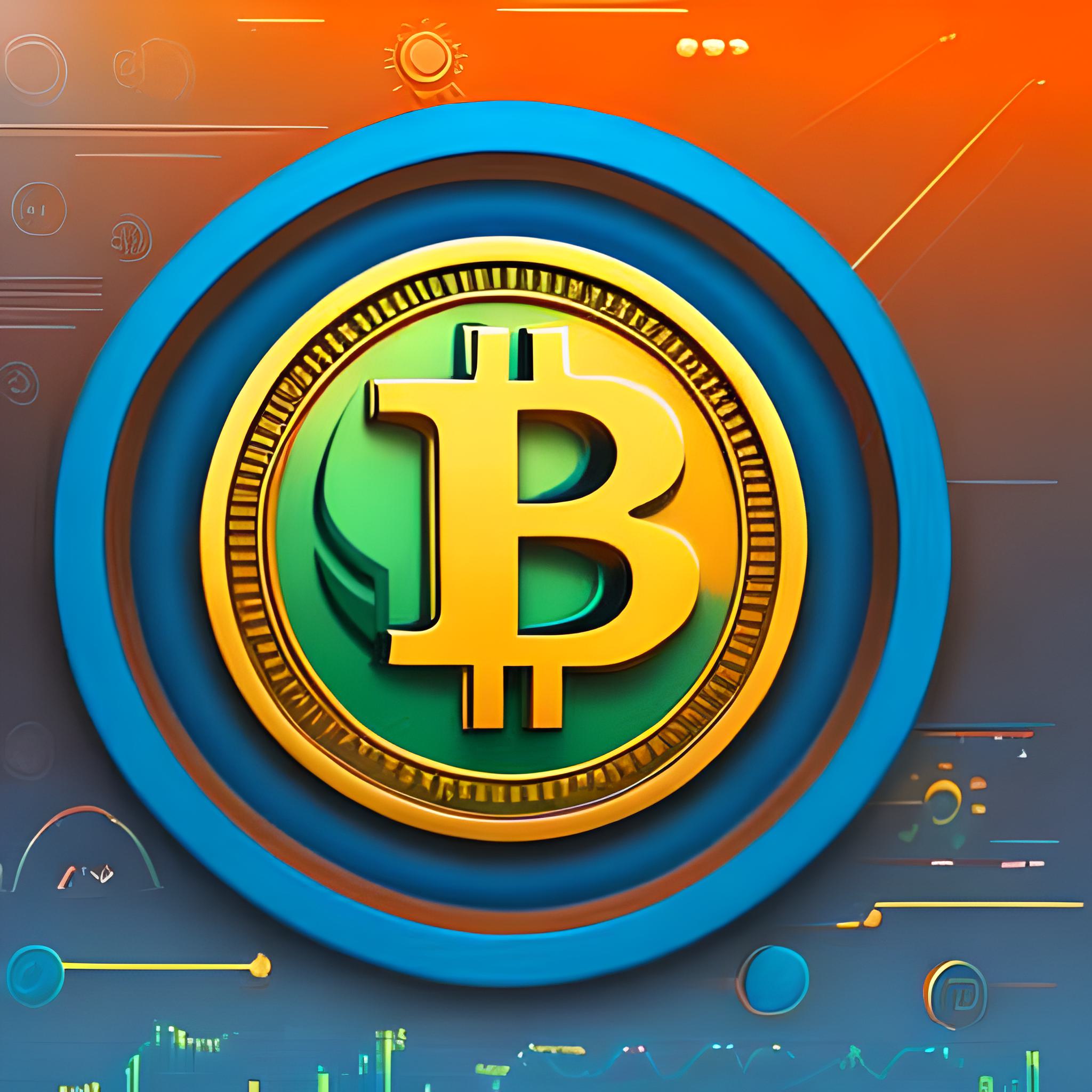Decentralized finance (DeFi) is transforming the cryptocurrency landscape. By providing an open, transparent, and secure financial system, DeFi is revolutionizing the way people access and use digital assets. This article explores the impact of DeFi on the cryptocurrency landscape, from its ability to create new financial products to its potential to drive greater adoption of digital currencies. We will look at the advantages and disadvantages of DeFi, and how it is changing the way people interact with cryptocurrency. Finally, we will discuss the potential of DeFi to shape the future of the digital asset industry.
Understanding the Basics of Decentralized Finance (DeFi)
Decentralized Finance (DeFi) is a rapidly growing sector of the cryptocurrency industry that is revolutionizing the way financial services are provided. DeFi is a term used to describe the use of blockchain technology to create an open, permissionless, and trustless financial system. This system allows users to access financial services without the need for a central authority or intermediary.
DeFi has the potential to revolutionize the way financial services are provided. By eliminating the need for a central authority, DeFi can provide users with access to financial services that are more secure, transparent, and efficient. Additionally, DeFi can provide users with access to financial services that are more accessible, affordable, and accessible to a wider range of users.
At its core, DeFi is a set of protocols and technologies that allow users to access financial services without the need for a central authority or intermediary. This includes the use of smart contracts, decentralized exchanges, and decentralized applications (dApps). Smart contracts are self-executing contracts that are stored on the blockchain and can be used to facilitate transactions between users. Decentralized exchanges are platforms that allow users to trade cryptocurrencies without the need for a central authority or intermediary. Decentralized applications (dApps) are applications that are built on the blockchain and can be used to provide users with access to financial services.
DeFi is a rapidly growing sector of the cryptocurrency industry and is revolutionizing the way financial services are provided. By eliminating the need for a central authority, DeFi can provide users with access to financial services that are more secure, transparent, and efficient. Additionally, DeFi can provide users with access to financial services that are more accessible, affordable, and accessible to a wider range of users. DeFi is a technology that has the potential to revolutionize the way financial services are provided and is one of the most exciting and innovative developments in the cryptocurrency industry.
Examining the Impact of DeFi on Cryptocurrency Markets
The emergence of decentralized finance (DeFi) has had a significant impact on the cryptocurrency markets. DeFi is a new form of financial technology that enables users to access financial services without the need for a centralized authority. It is based on the blockchain technology and is decentralized, meaning that it is not controlled by any single entity.
DeFi has enabled users to access a range of financial services such as lending, borrowing, trading, and investing without the need for a centralized authority. This has opened up the cryptocurrency markets to a wider range of users, as it is now possible to access these services without having to go through a bank or other financial institution.
The impact of DeFi on the cryptocurrency markets has been profound. It has allowed users to access a range of financial services without the need for a centralized authority, and this has opened up the markets to a wider range of users. Additionally, it has allowed users to access these services in a more secure and efficient manner, as the blockchain technology provides a secure and transparent platform for transactions.
The impact of DeFi on the cryptocurrency markets has also been felt in terms of the prices of cryptocurrencies. As more users are able to access these services, the demand for cryptocurrencies has increased, which has caused the prices of cryptocurrencies to rise. This has been beneficial for investors, as it has allowed them to make profits from the rising prices of cryptocurrencies.
Overall, the emergence of DeFi has had a significant impact on the cryptocurrency markets. It has opened up the markets to a wider range of users, and it has allowed users to access a range of financial services in a more secure and efficient manner. Additionally, it has caused the prices of cryptocurrencies to rise, which has been beneficial for investors.
Exploring the Benefits of DeFi for Investors
Decentralized finance (DeFi) is a rapidly growing sector of the cryptocurrency industry that has been gaining a lot of attention from investors. DeFi is a form of financial technology that allows users to access financial services without the need for a centralized third-party. This technology is based on the blockchain, which is a secure and transparent ledger system that records all transactions.
DeFi has a lot of potential benefits for investors. The most obvious benefit is that it allows investors to access financial services without the need for a third-party. This eliminates the need for expensive fees and other restrictions that are often associated with traditional financial services. Additionally, DeFi is decentralized, meaning that it is not controlled by any single entity. This makes it much more secure and resistant to manipulation or fraud.
Another benefit of DeFi is that it allows investors to access a wide range of financial services. These services include lending, borrowing, trading, and staking. This allows investors to diversify their portfolios and access a variety of different services. Additionally, DeFi is open to anyone, regardless of their location or financial status. This makes it accessible to a much wider range of people than traditional financial services.
Finally, DeFi is a rapidly growing sector of the cryptocurrency industry. This means that there is a lot of potential for growth and innovation. As more people become aware of DeFi and its potential benefits, more investors are likely to get involved. This could lead to an increase in the value of DeFi-based assets, as well as more investment opportunities.
Overall, DeFi has a lot of potential benefits for investors. It allows users to access financial services without the need for a third-party, is decentralized and secure, offers a wide range of services, and is open to anyone. Additionally, it is a rapidly growing sector of the cryptocurrency industry, which could lead to increased value and more investment opportunities. For these reasons, DeFi is an attractive option for investors looking to diversify their portfolios and access a variety of financial services.
Analyzing the Risks of DeFi for Crypto Traders
Decentralized finance (DeFi) is an emerging trend in the cryptocurrency world that has the potential to revolutionize the way financial services are provided. DeFi is a set of protocols and applications that allow users to access financial services such as lending, borrowing, trading, and investing without the need for a centralized intermediary.
The DeFi space is still relatively new and largely unregulated, so it’s important for crypto traders to understand the risks associated with DeFi before they get involved. Here are some of the key risks to consider when analyzing the DeFi space:
1. Counterparty Risk: DeFi protocols and applications are built on smart contracts, which are self-executing computer programs that are used to facilitate transactions between two or more parties. As with any smart contract, there is always the risk that the code could contain bugs or be exploited by malicious actors. This could lead to losses for users who are relying on the contract to execute correctly.
2. Liquidity Risk: DeFi protocols and applications rely on liquidity pools to provide users with access to funds. If the liquidity pool is not large enough, it could lead to a situation where users are unable to access the funds they need when they need them.
3. Regulatory Risk: The DeFi space is largely unregulated, which means that users may not have the same protections as they would with a traditional financial institution. This could lead to losses if the protocol or application is shut down or otherwise restricted by regulators.
4. Security Risk: DeFi protocols and applications are built on blockchain technology, which is vulnerable to attack from hackers. If a hacker is able to gain access to a user’s funds, they could potentially steal them or cause other damage.
5. Volatility Risk: Cryptocurrencies are known for their volatility, and DeFi protocols and applications are no exception. If the value of the underlying asset drops significantly, users could be left with losses.
These are just a few of the risks associated with DeFi protocols and applications. It’s important for crypto traders to understand these risks before they get involved in the DeFi space. By doing so, they can make informed decisions and protect themselves from potential losses.
Assessing the Regulatory Challenges of DeFi
The emergence of decentralized finance (DeFi) has revolutionized the financial industry. DeFi is a financial system built on top of blockchain technology, allowing users to access financial services without relying on a centralized authority. DeFi offers a wide range of services, including lending, borrowing, trading, and insurance.
However, DeFi also poses a number of regulatory challenges. Since DeFi is a decentralized system, it is not subject to the same regulations as traditional financial services. This lack of regulation has raised concerns about the potential for fraud and money laundering. In addition, DeFi protocols are often complex and difficult to understand, making it difficult for regulators to properly assess their risks.
In order to ensure the safety and security of DeFi users, regulators must assess the regulatory challenges posed by DeFi. This assessment should include an analysis of the protocols used by DeFi projects, the risks associated with them, and the potential for fraud and money laundering. In addition, regulators should consider the potential for manipulation of DeFi protocols and the need for transparency and disclosure.
Regulators should also consider the need for consumer protection. DeFi protocols often involve complex financial instruments and transactions, and users may not be aware of the risks involved. Regulators should ensure that DeFi users are adequately informed of the risks associated with their investments and that they have access to the necessary resources to make informed decisions.
Finally, regulators should consider the need for enforcement. As DeFi is a decentralized system, it is difficult to enforce regulations. Regulators should consider the need for effective enforcement mechanisms to ensure that DeFi protocols are compliant with applicable laws and regulations.
In conclusion, assessing the regulatory challenges posed by DeFi is essential for ensuring the safety and security of users. Regulators must assess the protocols used by DeFi projects, the risks associated with them, and the potential for fraud and money laundering. In addition, regulators should consider the need for consumer protection and effective enforcement mechanisms. By doing so, regulators can ensure that DeFi protocols are compliant with applicable laws and regulations and that users are adequately informed of the risks associated with their investments.
Investigating the Future of DeFi in the Cryptocurrency Landscape
The cryptocurrency landscape is rapidly evolving, and one of the most exciting developments is the emergence of decentralized finance (DeFi). DeFi is a rapidly growing ecosystem of financial services built on top of blockchain technology. It has the potential to revolutionize the way we access and use financial services, by providing a secure, transparent, and efficient way to access financial services without the need for traditional intermediaries.
DeFi is an umbrella term for a variety of different financial services and products, such as lending, borrowing, derivatives, asset management, and more. These services are built on top of blockchain technology, allowing them to be trustless and permissionless. This means that users can access these services without having to trust a third party, and without having to ask for permission from anyone.
The potential of DeFi is immense. It could revolutionize the way we access and use financial services, by providing a secure, transparent, and efficient way to access financial services without the need for traditional intermediaries. It could also provide access to financial services to those who are currently excluded from the traditional financial system, such as those in developing countries.
However, there are still many challenges that need to be addressed before DeFi can reach its full potential. These include scalability, security, and regulatory compliance. In order to ensure that DeFi is able to reach its full potential, it is important to investigate the future of DeFi in the cryptocurrency landscape.
The first step in investigating the future of DeFi is to understand the current state of the DeFi ecosystem. This includes understanding the various protocols, projects, and services that are currently available, as well as the various challenges that they face. It is also important to understand the various use cases for DeFi, and how they can be applied to different industries.
The next step is to understand the potential of DeFi. This includes understanding the potential of DeFi to revolutionize the way we access and use financial services, as well as the potential of DeFi to provide access to financial services to those who are currently excluded from the traditional financial system. It is also important to understand the potential of DeFi to provide new investment opportunities, and to provide new ways for businesses to raise capital.
Finally, it is important to understand the regulatory landscape for DeFi. This includes understanding the various regulations that are currently in place, as well as the potential for new regulations to be introduced in the future. It is also important to understand the potential for DeFi to be adopted by traditional financial institutions, and the potential for DeFi to be integrated into existing financial infrastructure.
Investigating the future of DeFi in the cryptocurrency landscape is an important step in understanding the potential of DeFi and its potential to revolutionize the way we access and use financial services. By understanding the current state of the DeFi ecosystem, the potential of DeFi, and the regulatory landscape for DeFi, it is possible to gain a better understanding of the future of DeFi and its potential to revolutionize the way we access and use financial services.
Examining the Intersection of DeFi and Traditional Finance
Examining the intersection of DeFi and traditional finance is an important topic in the world of finance today. DeFi, or decentralized finance, is a new financial system that operates without the need for a central authority or intermediary. It is based on blockchain technology and allows users to create, trade, and manage financial instruments and services without the need for a centralized third party.
At its core, DeFi is a new way of doing finance that is open, transparent, and secure. It has the potential to revolutionize the way we think about and interact with financial services. The idea of DeFi is to create a more efficient, cost-effective, and secure way to access financial services.
The intersection of DeFi and traditional finance is an important area of exploration. DeFi has the potential to provide a more efficient and secure way to access financial services. It can also provide access to new financial instruments and services that are not available through traditional financial institutions.
The intersection of DeFi and traditional finance is an area of exploration that is still in its early stages. As the technology and infrastructure of DeFi continues to develop, the potential applications and use cases for DeFi will become more clear. As the technology and infrastructure of DeFi continues to evolve, it is likely that more traditional financial institutions will begin to explore and adopt DeFi technology.
The intersection of DeFi and traditional finance is an important area of exploration that has the potential to revolutionize the way we think about and interact with financial services. As the technology and infrastructure of DeFi continues to evolve, it is likely that more traditional financial institutions will begin to explore and adopt DeFi technology. It is an exciting time for the world of finance and the potential of DeFi is immense.
In conclusion, Decentralized Finance (DeFi) has had a tremendous impact on the cryptocurrency landscape. DeFi offers a wide range of benefits, including greater access to financial services, improved liquidity, and enhanced security. By leveraging the power of blockchain technology, DeFi has enabled the creation of innovative financial products and services that have revolutionized the way we interact with digital assets. DeFi has also opened up the cryptocurrency market to a much larger audience, providing access to financial services that were previously unavailable. As the DeFi space continues to grow, we can expect to see even more innovation and disruption in the cryptocurrency landscape.
Excerpt
Decentralized finance (DeFi) is a rapidly growing sector of the cryptocurrency landscape. It is a new type of financial system that is built on blockchain technology and allows users to access financial services without the need for a centralized intermediary. DeFi has the potential to revolutionize the way we interact with money and has the potential to create new opportunities for users to access and manage their finances.



